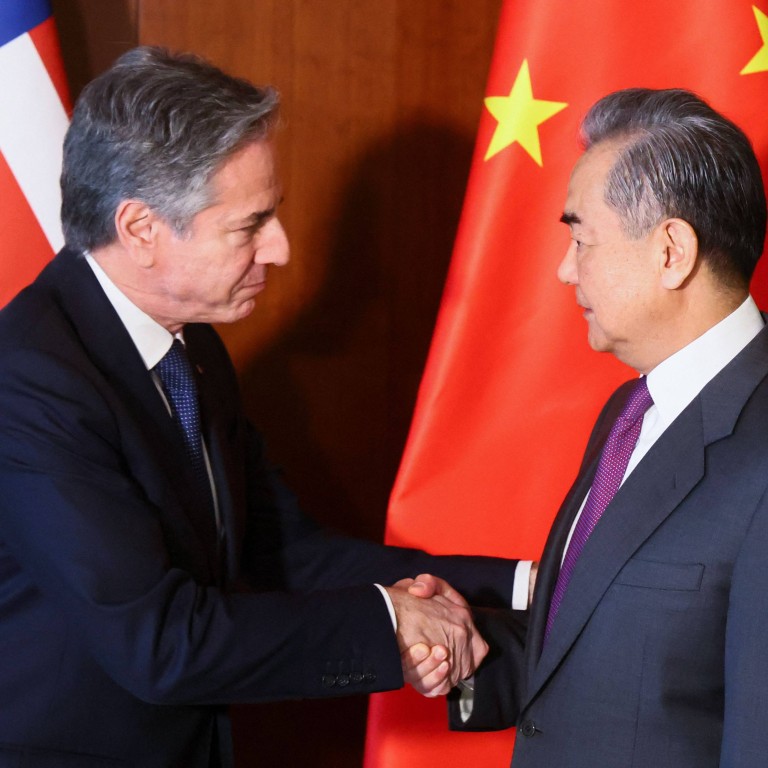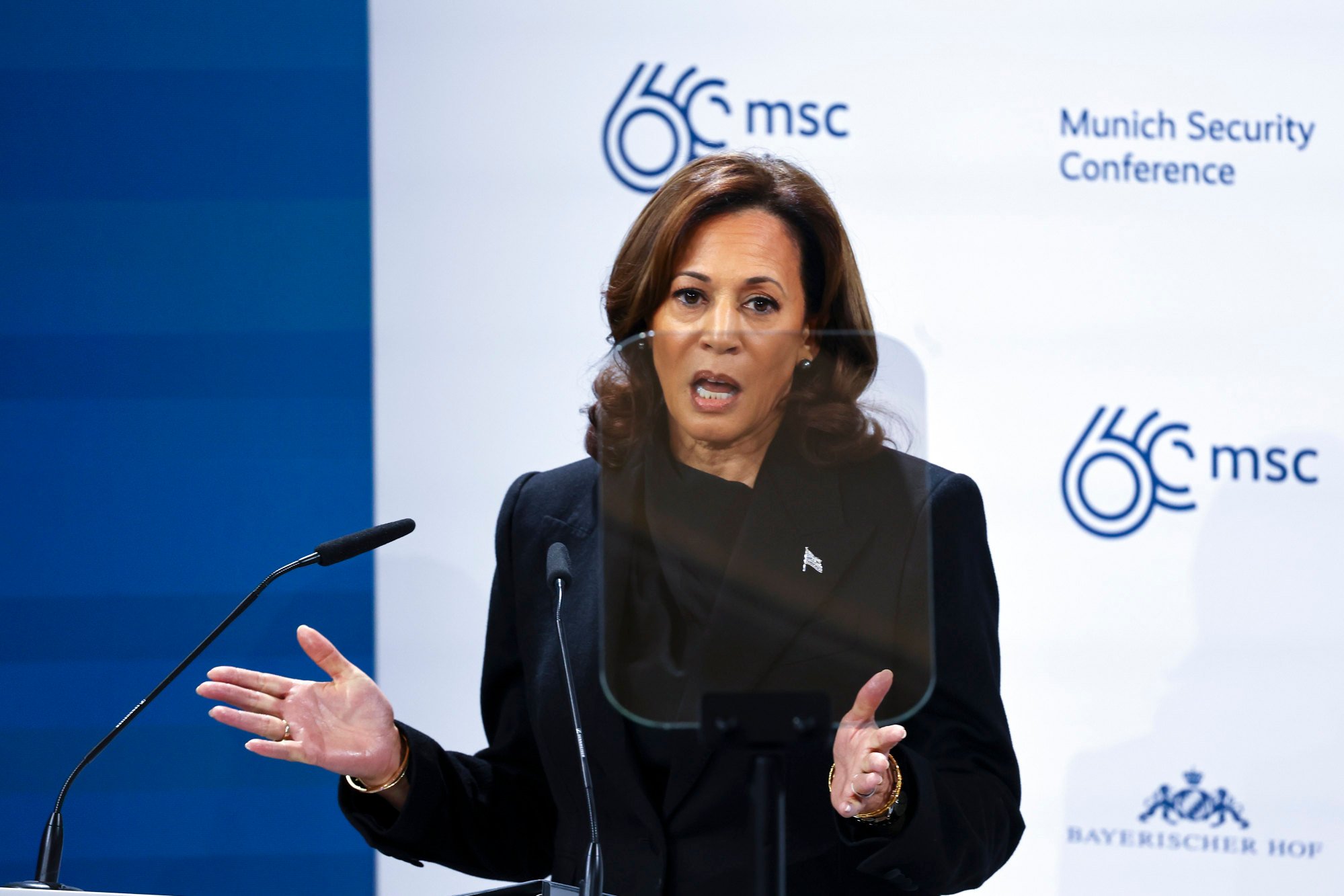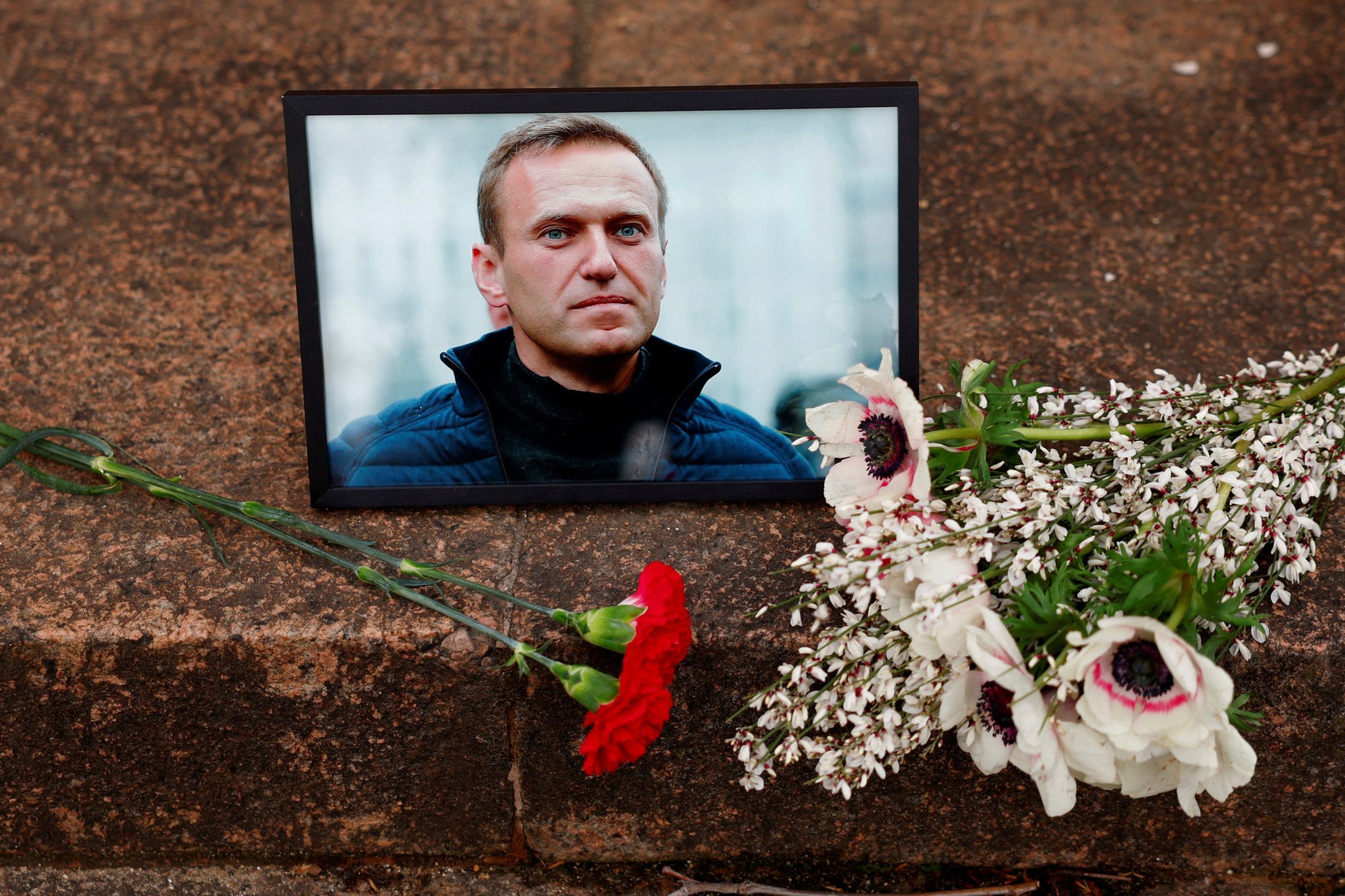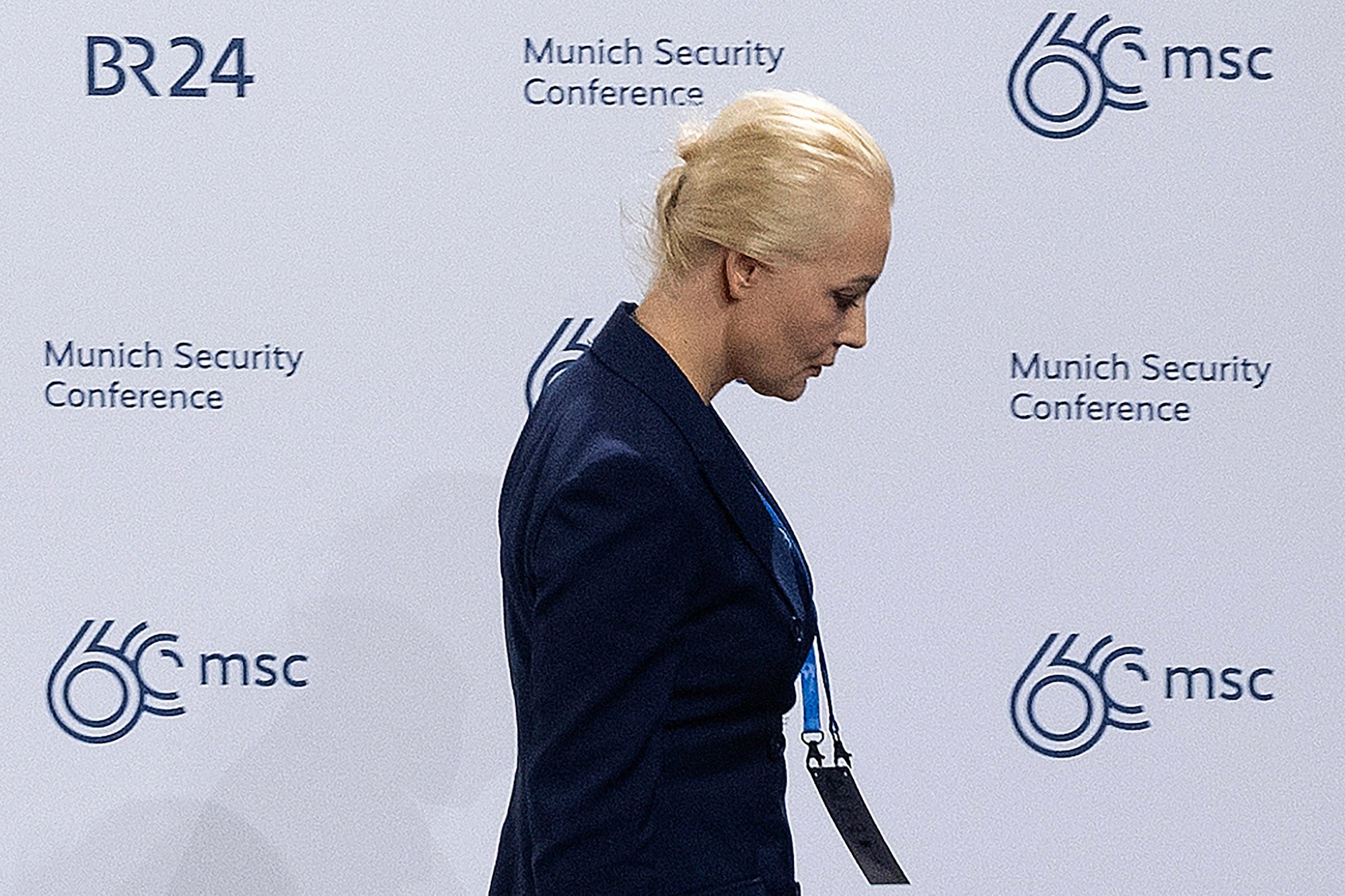
Chinese Foreign Minister Wang Yi and US Secretary of State Antony Blinken meet in Munich
- Wang and Blinken speak on sidelines of Munich Security Conference and discuss Taiwan Strait, South China Sea and China’s support of Russia in Ukraine, US says
- Conference is overshadowed by announcement of death of Russian opposition leader Alexei Navalny in maximum-security prison
The two sides “had a candid and constructive discussion,” said Matthew Miller, the US State Department spokesperson, after the hotly anticipated meeting took place on the sidelines of the summit.
Both sides recognised the importance of maintaining open lines of communication, including consultations and high-level meetings in key areas in the coming months, Miller said.

The two sides also exchanged views about the current situations in the Middle East and on the Korean peninsula, affirming that their respective senior officials should meet to follow up on these discussions, he added.
Earlier on Friday, US Vice-President Kamala Harris told the Munich conference that the US had “responsibly managed competition” with China, “standing up to Beijing when necessary, and also working together when it serves our interests”.
Speaking at the summit on Friday, Cameron spoke of the need to engage with China, even as Beijing “has become more assertive”.
As Europe reels from Trump threat, Ukraine and Middle East, Wang heads to Munich
“I think that China has become more assertive, but that doesn’t mean you shouldn’t try to engage.”
He “reiterated the EU’s expectation that China refrains from supporting Russia,” it read.
“Both countries are trying to manage the relationship more effectively than they have before precisely because they want to avoid ‘lose-lose’,” said Ian Bremmer, president of the Eurasia Group consultancy, on the sidelines of the summit.
“This is despite the fact that there’s no trust in the relationship, there’s no entente in the relationship, but there is an enormous amount of interdependence. And I think it’s going to last, at least for a bit.”
Biden blasts Trump’s ‘dumb’ and ‘dangerous’ Nato threats
The Chinese statement at the time said Wang “set forth China’s strong position on the so-called ‘balloon incident’ and urged the US to “resolve the damage its abuse of force has done to China-US relations”.
The US said then that Blinken “spoke to the unacceptable violation of US sovereignty and international law by the PRC high-altitude surveillance balloon in US territorial airspace, underscoring that this irresponsible act must never again occur”.

A series of Western officials condemned Moscow over Navalny’s death. Harris said that Washington was “working to confirm” the news, adding: “Whatever story they tell, let us be clear, Russia is responsible.”
Navalny’s wife, Yulia, took the stage immediately after Harris, just hours after the news of her husband’s death appeared in Russian media. She drew a standing ovation from the gathered leaders.
“We’ve probably all seen today’s horrible news. I asked myself if I should come here or get on a plane to go to my children. And then I asked what Alexei would do in my place. And I’m certain that he would be here,” Yulia Navalnaya said.
In Friday’s debates, China played second fiddle to the geopolitical turmoil in the Middle East, the war in Ukraine, and the coming US elections.
“We know that China still exists, but suddenly we don’t talk about China … it is clear that China, the big elephant in the room, is not at the epicentre of our concerns,” Borrell, the EU’s top diplomat, said on the sidelines of the summit.

“TV screens are full of people being killed or wounded. Destruction is much more appealing to the eyes than a theory on economic security, or China’s expansion in South China Sea. But these events continue … and sooner or later, it will be another crisis,” he added.
Harris dismissed that “world view” as “dangerous, destabilising and indeed short-sighted”, implying it would embolden China.
“Imagine if we went easy on Putin, let alone encouraged him. History offers a clue if we stand by, while an oppressor invades its neighbour with impunity, they will keep going. And in the case of Putin, that means all of Europe would be threatened,” Harris said.
“If we fail to impose severe consequences on Russia, other authoritarians across the globe would be emboldened. Because you see, they would be watching – they are watching and drawing lessons,” she added.


